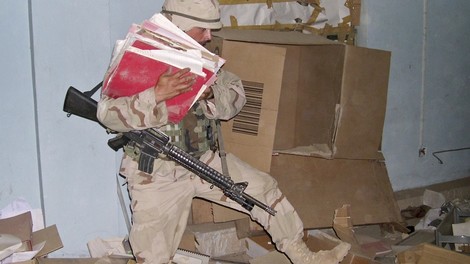Your podcast discovery platform
Curious minds select the most fascinating podcasts from around the world. Discover hand-piqd audio recommendations on your favorite topics.

piqer for: Technology and society Global finds Globalization and politics
Emran Feroz is an Afghan-Austrian journalist currently based in Stuttgart, Germany. He is regularly writing from Afghanistan, often focusing on the Middle East, Central Asia, drone warfare, refugee policies and human rights. Emran is writing in both German and English. His work has already appeared in international media outlets such as Al Jazeera, The Intercept, Alternet, The Atlantic or the New York Times and in various German and Austrian news papers and magazines.
When Journalists Plunder
Last month, the New York Times published its "ISIS Files" about the inner workings of the so-called Islamic state. The files are based on more than 15,000 pages of internal documents that reporter Rukmini Callimachi removed from Iraq over a period of more than a year.
In Iraq, Callimachi was literally running around with trash bags, rushing into buildings that had been freshly cleared of the militants to collect documents and hard drives.
Although Callimacihi's work is celebrated by many, some people are not happy with what she did.
In this piece, well-known Iraqi writer and poet Sinan Antoon accuses the NYT reporter of plundering.
"The documents are crucial for the country's history and its future and they belong to the Iraqis. Their removal from Iraq, irrespective of any justification, is a violation of the 1907 Hague Convention," Antoon writes.
Many post-colonial countries in Asia, Africa or South America faced plundering during the last centuries. Today, many of these historic objects are still presented in Western museums.
Iraq itself faced mass plundering very recently when the American-led invasion took place in 2003. Back then, many things vanished. The United States plundered millions of documents and moved them out of Iraq during its occupation of the country.
Stay up to date – with a newsletter from your channel on Globalization and politics.
